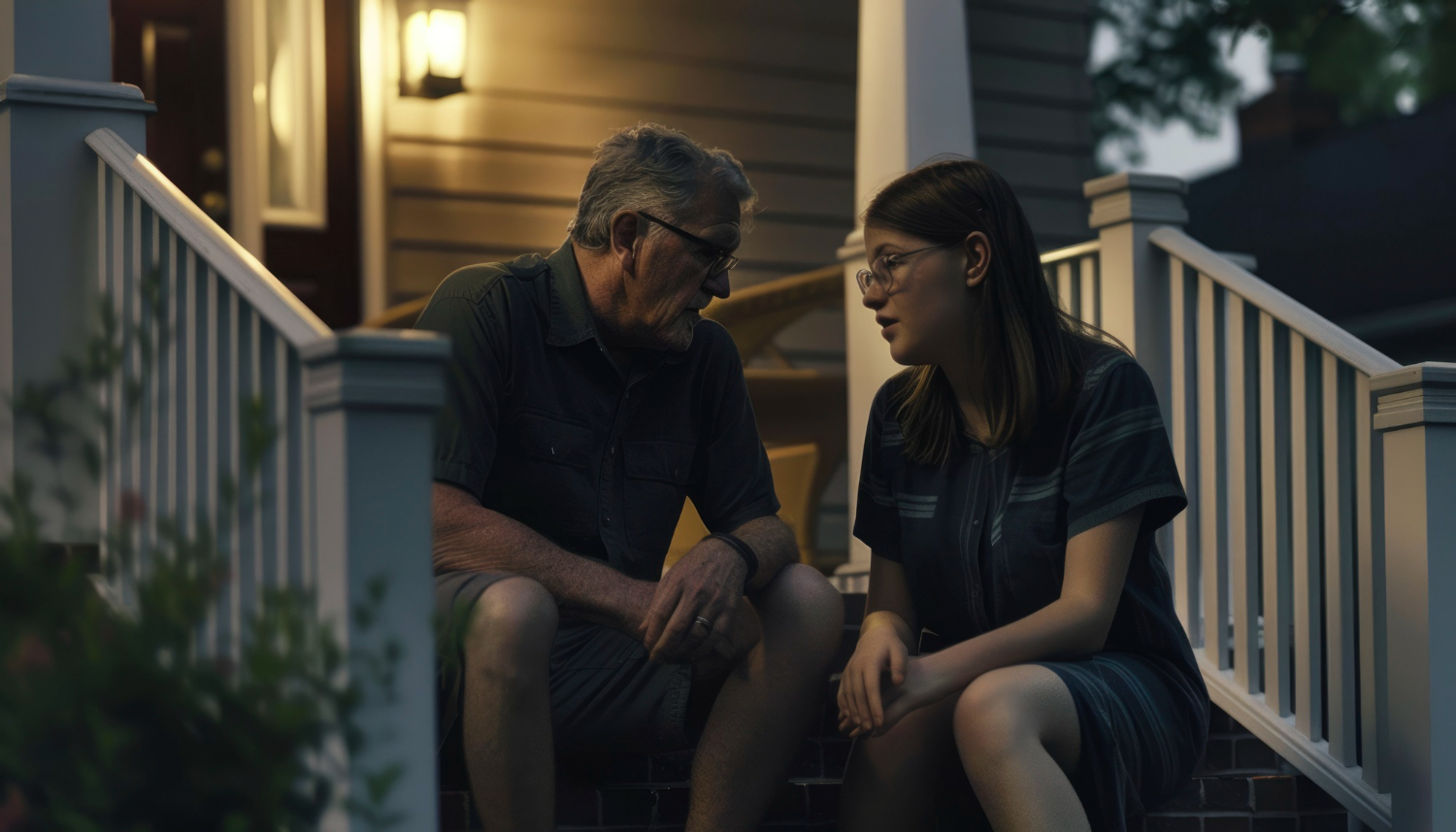
Grief is a universal human experience that touches everyone at some point in life. Whether it's the loss of a loved one, the end of a relationship, a career setback, or another significant change, grief is the natural emotional response to loss. According to the American Psychological Association, approximately 10-20% of people experience complicated grief—a persistent form of intense grief—after losing someone close to them.In this comprehensive guide, we'll explore the stages of grief, how they manifest, coping strategies that actually work, and when to seek professional help. By understanding the grieving process, you can navigate your journey more effectively and support others through theirs.

Understanding the Five Stages of Grief
The concept of grief stages was introduced by psychiatrist Elisabeth Kübler-Ross in her 1969 book "On Death and Dying." While initially developed to describe the experiences of those facing terminal illness, these stages have been widely applied to various forms of loss and grief.
Denial: The Initial Shield
Denial often serves as the mind's first defense mechanism against overwhelming emotions. During this stage, you might experience:
- Numbness or shock
- Difficulty believing the loss has occurred
- Going through motions of daily life in a fog
- Statements like "This can't be happening" or "Everything is fine"
A 2019 study in the Journal of Death and Dying found that 72% of bereaved individuals reported experiencing significant denial in the first two weeks after a loss.Denial isn't merely avoidance—it's your psyche's way of gradually absorbing the reality of loss. This temporary buffer allows you to process information at a pace your mind can handle.
Anger: The Emotional Surge
As denial fades, powerful emotions often emerge—with anger frequently at the forefront. This anger might be directed at:
- The deceased person for "abandoning" you
- Healthcare providers who couldn't prevent the death
- Friends or family who don't understand your grief
- A higher power or the universe for allowing this to happen
- Yourself for perceived failures or things left unsaid
Research from the Grief Recovery Institute indicates that 65% of grieving individuals report episodes of significant anger during their grief journey.Rather than suppressing this anger, grief experts recognize it as a natural part of healing. It represents the intensity of your love and the depth of your loss.
Bargaining: Seeking Alternative Outcomes
The bargaining stage often involves a series of "what if" and "if only" thoughts as you mentally negotiate for a different outcome:
- "If only I had taken them to the doctor sooner..."
- "What if I had been a better partner/friend/child?"
- "I promise to be a better person if this pain goes away"
A 2020 review in the Journal of Counseling Psychology found that bargaining thoughts occurred in approximately 57% of bereaved individuals, with higher rates among those dealing with sudden or unexpected losses.These thoughts reflect your mind's struggle to regain control in an uncontrollable situation. While painful, they're part of gradually accepting the new reality.
Depression: The Weight of Reality
As the permanence of loss becomes undeniable, a profound sadness often settles in. This isn't clinical depression (though they can coexist), but rather a natural response to loss. Signs include:
- Overwhelming sadness
- Sleep disturbances
- Changes in appetite
- Withdrawal from social activities
- Difficulty finding joy or meaning
The National Institute of Mental Health reports that approximately 30% of people experiencing grief will have symptoms that mirror clinical depression, though this doesn't necessarily indicate a disorder.This stage represents the emotional acknowledgment of what has been lost, allowing you to begin processing the depth of your grief.
Acceptance: Finding a New Normal
Acceptance doesn't mean you're "over it" or that the pain has disappeared. Rather, it means you're learning to live with the loss as part of your story:
- Adjusting to a new reality
- Finding new routines and patterns
- Experiencing moments of joy without guilt
- Being able to speak about the loss more easily
- Creating meaning from your experience
A longitudinal study published in JAMA Psychiatry found that most bereaved individuals reached some level of acceptance within 6-24 months, though this timeline varies greatly depending on factors like relationship to the deceased and circumstances of death.

Beyond the Five Stages: Modern Understanding of Grief
Since Kübler-Ross introduced her model, grief research has evolved significantly. Modern grief professionals recognize that:
- Grief isn't linear—you may move back and forth between stages
- You might not experience all five stages
- Additional experiences like shock, yearning, or meaning-making are common
- Grief can manifest physically, not just emotionally
The Dual Process Model of grief, developed by researchers Stroebe and Schut, suggests we oscillate between loss-oriented coping (focusing on the loss) and restoration-oriented coping (adjusting to life changes and developing a new identity).
Types of Grief Experiences
Not all grief follows the same pattern. Some common variations include:
Anticipatory Grief
When loss is anticipated, such as during a terminal illness, grieving often begins before the actual loss occurs. According to the American Hospice Foundation, approximately 70% of family caregivers experience significant anticipatory grief.This can include:
- Imagining life without your loved one
- Mentally rehearsing their death
- Beginning to detach emotionally
- Experiencing grief symptoms while still providing care
Complicated Grief
When grief symptoms remain intense and debilitating for an extended period, complicated grief may be present. Research in JAMA Psychiatry indicates that 7-10% of bereaved individuals develop complicated grief.Signs include:
- Intense longing for the deceased that doesn't improve with time
- Difficulty accepting the death months or years later
- Persistent feelings of bitterness or that life is meaningless
- Inability to resume normal routines and relationships
- Intrusive thoughts about the loss that interfere with daily functioning
Disenfranchised Grief
Sometimes grief isn't socially acknowledged or publicly mourned, such as with:
- Miscarriage or pregnancy loss
- Death of an ex-spouse
- Loss of a pet
- Non-death losses like divorce or job loss
- Death involving stigma (suicide, drug overdose)
A 2021 study from the Center for Loss and Life Transition found that disenfranchised grief often leads to prolonged grief symptoms due to lack of social support.
Physical Manifestations of Grief
Grief doesn't just affect our emotions—it can manifest physically. According to the Mayo Clinic, common physical symptoms include:
- Fatigue and exhaustion
- Immune system suppression
- Changes in sleep patterns
- Digestive issues
- Chest pain or tightness
- Increased susceptibility to illness
Research in The Lancet found that in the weeks following a significant loss, mourners face a 21% higher risk of heart attack, highlighting grief's profound physical impact.
Coping Strategies for Healthy Grieving
Express Your Emotions
Research consistently shows that suppressing grief emotions often prolongs the grieving process. Healthy expression can take many forms:
- Talking with trusted friends, family, or support groups
- Journaling about your thoughts and feelings
- Creating art, music, or other creative expressions
- Crying when you need to without judgment
Honor Your Loved One
Creating rituals or meaningful ways to remember can support healing:
- Memorial services or celebrations of life
- Creating memory books or boxes
- Continuing traditions that were important to them
- Charitable donations or volunteering in their name
Practice Self-Care
Grief is physically and emotionally depleting. Prioritizing basic needs is essential:
- Maintain regular sleep patterns
- Eat nutritious meals, even when appetite is poor
- Engage in gentle physical activity
- Limit alcohol and substances that can intensify emotions
- Practice mindfulness to stay grounded when overwhelmed
Seek Connection
While isolation is common during grief, connection is healing. The Harvard Study of Adult Development found that strong relationships are a key predictor of resilience during grief.
- Join a grief support group
- Maintain connections with understanding friends and family
- Consider grief counseling or therapy
- Connect with faith communities if relevant to your beliefs
Supporting Someone Who Is Grieving
When someone you care about is grieving, the following approaches can help:
Listen More Than You Speak
Often, grieving people need space to express themselves without receiving advice or platitudes. Simple presence can be more valuable than words.
Avoid Minimizing Statements
Phrases like "They're in a better place" or "At least they didn't suffer" may feel comforting to say but can invalidate the griever's pain.
Offer Specific Help
Instead of saying "Let me know if you need anything," offer concrete assistance: "I'm bringing dinner Thursday" or "I can pick up your kids from school this week."
Remember Important Dates
Anniversaries, birthdays, and holidays can trigger grief. A text or call acknowledging these difficult days can mean everything.
When to Seek Professional Help
While grief isn't a medical condition, sometimes professional support is needed. Consider seeking help if:
- You're having thoughts of self-harm or suicide
- You're unable to function in daily life for an extended period
- You're using substances to cope with grief
- Your relationships are significantly suffering
- Your grief isn't improving at all with time
A study in the Journal of Clinical Psychology found that grief-focused therapy reduced symptoms of complicated grief by 70% among participants who weren't improving with time alone.
Cultural Perspectives on Grief
Grief experiences are influenced by cultural background, religious beliefs, and family patterns. Some examples:
- In Japanese Buddhist traditions, families maintain altars at home to honor ancestors
- Irish wakes traditionally combine mourning with celebration of life
- In some Hispanic cultures, Día de los Muertos celebrates connections with deceased loved ones
- Jewish tradition prescribes specific mourning periods, including shiva and shloshim
The American Psychological Association emphasizes that no cultural approach to grief is "right" or "wrong"—each offers valuable perspectives on honoring loss.
Grief in the Digital Age
Modern grief has new dimensions, including:
- Social media memorials and legacy accounts
- Digital assets and passwords after death
- Online grief support communities
- Virtual funeral attendance
A 2022 Pew Research study found that 74% of people who lost someone in the past year engaged with some form of digital memorialization.
Finding Meaning After Loss
Psychologist Viktor Frankl famously proposed that finding meaning in suffering is key to human resilience. After significant grief, many people report:
- Developing greater empathy for others
- Clarified personal values and priorities
- New perspective on what matters in life
- Commitment to causes or communities
- Deeper appreciation for remaining relationships
A 2019 study in Psychological Science found that while grief never fully disappears for many people, 73% of participants reported finding meaningful personal growth within two years of a major loss.
Conclusion
Grief is as unique as the relationship that was lost. There is no "right way" to grieve and no perfect timeline for healing. The stages of grief provide a framework for understanding common experiences, but your journey will follow its own path.What matters most is allowing yourself to feel what comes, seeking support when needed, and being patient with the process. With time, most people find that while the grief doesn't disappear, it changes—becoming a testimony to love rather than just an expression of pain.If you're grieving, remember this: your grief reflects the depth of your connection. It's not something to "get over" but rather to move through, carrying your love and memories forward into a life that, while forever changed, can still hold meaning and joy.






























